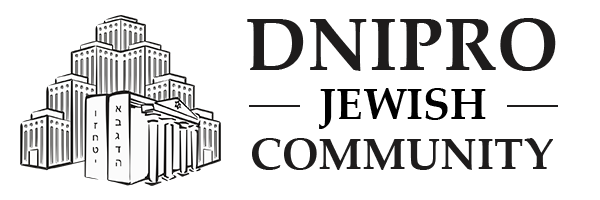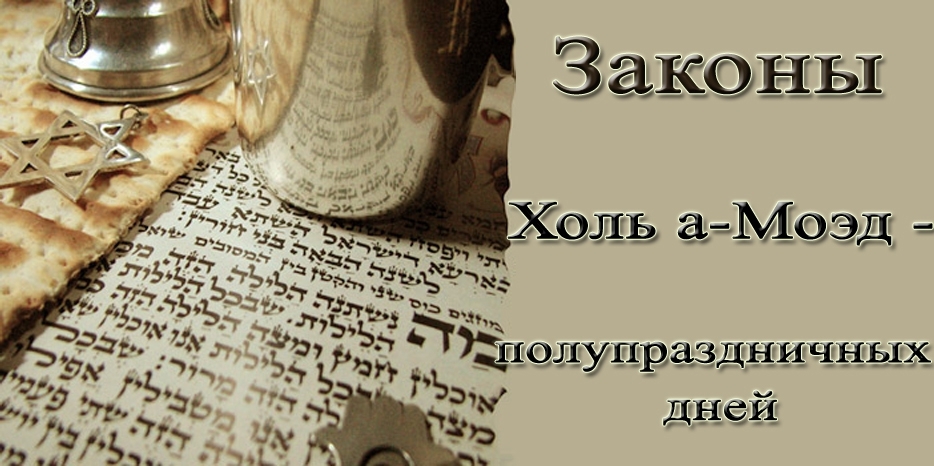The eight-day holiday of Pesach (Passover) includes days of differing status. The first two and the last two days are designated as Yom Tov (Festival Days), while the days in between are called Chol HaMoed, which translates as “the intermediate (weekday-like) days of the festival.” These days carry different rules and prohibitions. (In the Land of Israel, only the first and last days of the festival are Yom Tov, and the holiday of Pesach lasts only seven days.)
Regarding the unique nature of Chol HaMoed, we read in Rabbi Eliyahu Kitov’s Book of Our Heritage: From the Torah verse “You shall observe the Feast of Matzot for seven days”, the Sages of the Talmud (Tractate Chagigah) learned that many types of labor are prohibited during Chol HaMoed.
Even though our Sages identified a Torah source for the prohibition against labor on Chol HaMoed, the majority of halachic authorities concluded that this prohibition is rabbinic in nature. The Torah verse was used merely as support for the rabbinic enactment. However, some Rishonim—the prominent scholars of the 10th to 16th centuries—held that any labor on Chol HaMoed that does not serve a festival-related need or prevent significant financial loss (davar ha’aved) is directly prohibited by the Torah. Therefore, we are all obligated to treat the sanctity of Chol HaMoed with reverence and to engage only in those types of work permitted by halachah.
On these days, one should wear festive clothing and hold at least two meals: one in the evening and one during the day.
The Maharil would wear the same clothing on Chol HaMoed as on Shabbat. He had even more elegant garments for Yom Tov. The reason is that there is a unique mitzvah to rejoice on Yom Tov—a commandment that does not apply to Shabbat. As for Chol HaMoed, it is sufficient to wear one’s Shabbat clothing.
A festive meal held on Chol HaMoed must include bread. One who eats various dishes but does not eat bread is not considered to have fulfilled the mitzvah of a meal. During Pesach, this requirement has special significance, as one eats matzah instead of regular bread. According to the Vilna Gaon, Rabbi Eliyahu, eating matzah all seven days of Pesach fulfills the commandment literally as it is written in the Torah: “For seven days you shall eat matzah.”
There is an opinion that, just like on Shabbat and Yom Tov, one should have two whole loaves (on Pesach, two matzot) on the table during Chol HaMoed meals.
During the festival of Pesach, Psalm 100 (Mizmor le-Todah) is not recited in the morning prayers, because in the Holy Temple, the Thanksgiving offering (Korban Todah)—which required leavened bread—was not brought during these days.
Although Chol HaMoed is similar to Yom Tov, the special addition in Birkat HaMazon (Grace After Meals), “May the Merciful One grant us a day that is entirely good (kulo tov),” is not recited.
The Sanctity of Chol HaMoed
The days of Chol HaMoed are filled with holiness and are fully dedicated to the Almighty. The name Chol HaMoed—”weekday (chol) of the festival (moed)”—merely indicates that these days are of lesser sanctity than the first and seventh day of Pesach (which are Yom Tov). In all other respects, they are still moed—a festival.
Since Chol HaMoed is “framed” by Yom Tov days, it is also referred to as mikra kodesh—a “holy convocation.” Special Musaf offerings were brought on these days in the Temple, just as on other festival days.
The sanctity of Chol HaMoed is described in the Yesod VeShoresh HaAvodah as follows:
“Each of us must honor the holiness of these days, sanctify them with joy, and hold festive meals—as on Yom Tov. Otherwise, we may be likened to idolaters who reject the entire Torah, as the Talmud says: ‘One who disregards the festivals designated by the Almighty has no share in the World to Come, even if he is a Torah scholar and has done many good deeds.'”
Therefore, we must treat all festival days with special reverence. The reward for observing this mitzvah is greater than the punishment for violating it. Upon returning home during Chol HaMoed, we are to loudly proclaim “Mo’adim le-simcha” (“Festivals for joy”)—just as we do on Yom Tov. This is also part of sanctifying the festival. Those who greet others on Chol HaMoed as if it were a regular weekday show a lack of respect for the festival.
There is a beautiful custom to light candles in the evenings of Chol HaMoed, just as on Yom Tov. This custom is widespread among Ashkenazic communities.
Whoever invites a poor person to their festival table earns a great reward from Heaven. This is especially true on Chol HaMoed. The mitzvah of bringing joy to the poor is of great importance. Many people fulfill this mitzvah specifically during Chol HaMoed by preparing a festive meal each day for the needy. This is a beautiful way to sanctify Chol HaMoed. Those who do so will always be blessed with enough resources by the Almighty to continue bringing joy to others.
Kitzur Shulchan Aruch – Chapter 104: Laws of Chol Hamoed (Intermediate Days of a Yom Tov)
1
On Chol Hamoed it is forbidden to do certain melachos, while others are permitted, namely, all work that is necessary for the preparation of food for Chol Hamoed or Yom Tov. Any melachah that is done to prevent a loss, that is, if by not doing it you will incur a loss, may be done.4 But you should be very careful not to do any melachah that is forbidden on Chol Hamoed because our Rabbis, of blessed memory, said: “He who desecrates Chol Hamoed is considered as though he worshipped idols.”
2
In addition, our Rabbis, of blessed memory, said: “He who disgraces Chol Hamoed, even though he has to his credit Torah and good deeds, has no share in the World to Come.” Disgracing Chol Hamoed implies not honoring it with better food and wearing better clothes. Therefore, every man is obligated to honor it according to his means, and to wear dignified clothing.
3
Work, which, if not done, would result in a loss, may be done even by another Jew, even for payment. But, if no loss would result, but the work is needed for the festival, it should not be done by another Jew for pay, but by a non-Jew. And if you cannot find a non-Jew, and you are unable to do it yourself, it is permitted to have it done, even by a Jew for pay.
4
The law that permits melachah in order to prevent a loss, applies only if it was impossible for you to do it before Yom Tov, but if it was possible for you to do it before Yom Tov, and you left it for Chol Hamoed, you are forbidden to do it on Chol Hamoed.
5
Any work that is forbidden on Chol Hamoed, [is permitted in the following circumstances,] if a Jew does not have enough food for Chol Hamoed and Yom Tov, it is permitted to give him work, so that he will have something to eat, but he should do it in private. It is forbidden to have such work done by a non-Jew, but if it is needed for a mitzvah, it is permitted.
Kitzur Shulchan Aruch (Metsudah Publications)
Kitzur Shulchan Aruch is a summary of the Shulchan Aruch of Rabbi Yosef Karo. It was authored by Rabbi Shlomo Ganzfried in 1864.
6
Even melachos that are permitted, are forbidden to be done for a non-Jew.
7
It is forbidden to fertilize a field. Even to put sheep in a field to fertilize it with manure is forbidden. Even to have it done by a non-Jew is forbidden.
8
Planting is forbidden. However if you have seeds that will spoil completely, unless they are put into water, you are permitted to water [soak] them.
9
It is forbidden to pluck or cut off anything that is growing, unless the fruit will spoil [if left] until after Yom Tov. It is permitted to pluck what you need to eat on Yom Tov, and you do not have to skimp. You may pick a generous quantity, and if there is some left over, it does not matter. Also, wood that is needed for heating on the festival, is permitted to be cut from a growing tree. If it is necessary to pick something in order to feed your animals, it should be done in an irregular way. It is forbidden to collect wood from a field in order to improve it for plowing. But if it is obvious that you intend it for your own need, because you need the wood, for example, if you take the big pieces and leave the small ones, it is permissible. Similarly, it is forbidden to cut off the (soft) branches of a tree in order to trim it. But if it is obvious that your purpose is to feed the branches to your animals, and not to trim the tree, for example, if you cut all the branches from one side of the tree, it is permitted.
10
If you have a garden adjacent to a garden of a non-Jew, and the non-Jew is gathering his fruit, and if you do not gather (your fruit), you will incur a loss, you are permitted to gather them. And if they are fruits that will spoil when they are picked, unless you do additional melachah, you are permitted to do everything [that is necessary] even to press grapes to make wine or similar melachos, provided you did not intentionally leave this work to be done on Chol Hamoed.
11
It is forbidden to shave on Chol Hamoed, even if you shaved on erev Yom Tov. But a person who has been released from jail, even if he was released erev Yom Tov, but had no time to shave then, is permitted to shave on Chol Hamoed.
12
Cutting your nails is also forbidden, but if you cut them on erev Yom Tov, you are permitted to cut them also on Chol Hamoed. A woman is also permitted (to cut her nails) for the ritual immersion.
13
It is forbidden to launder anything, even (clothes) needed for the festivals, unless it was impossible to wash them before Yom Tov. Since (babies) urinate all the time, and you need many diapers, you are permitted to wash them, but you should be careful to wash them in privacy.
14
Anything required to restore health, is permitted to be done, either for man or beast.
15
It is permitted to record bills and similar records which, if not recorded will be forgotten because it is considered prevention of a loss. You are permitted to write whatever is necessary for the needs of Yom Tov, but it is forbidden to write anything else. Social letters that friends write to each other, should be written with a slight change, like writing the first line unevenly. For everything that you are permitted to write, you are also permitted to prepare a pen and ink.
16
A person who needs money, even if not for Yom Tov needs, and is afraid that he might not get a loan after Yom Tov, and the lender refuses to give a loan without receiving a note, is permitted to write such a note.
17
Weddings are not performed on Chol Hamoed because one kind of rejoicing should not be mixed with another. But one is permitted to remarry the woman he divorced. It is permitted to make a feast for a circumcision, or the redemption of a firstborn. It is also permitted to make a feast for an engagement.
18
It is permitted to hire workers, even Jews, to do work for you after Yom Tov.
19
You are permitted to go outside the techum, either on foot or in a vehicle, or on horseback.
20
It is not permitted to mate a male animal with a female animal, because no loss is sustained [by delaying it]
21
You are not allowed to set a chicken on eggs to hatch them. If you set her before the festival and she ran away, if it is within three days from the time she ran away, you are permitted to put her back, but after three days, you are forbidden to put her back, even if the eggs will be spoiled. And to set another in her place, even within three days is forbidden.




